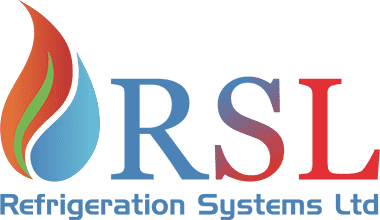
Did you perform a double take when you checked your last energy bill? While high energy bills can be the end result of intense weather events, consistently high bills can often indicate an inefficient HVAC system or your home is misusing energy because of other means, like drafty windows or poor insulation.
An easy way to identify whether your home is consuming too much energy is by getting a home service specialist to complete a home energy audit, also referred to as a home energy assessment. Keep reading to learn more about home energy audits, including what they are and their benefits.
What Is a Home Energy Audit?
An energy audit is a custom inspection of how much energy your home consumes and whether – and where – your home might be losing or wasting energy. An inspector will go through older energy bills during an energy audit to figure out where energy is being wasted and how much.
The ultimate goal of an energy audit is to help homeowners save money on their energy bills by identifying energy-efficient renovations, which can include swapping out your existing HVAC system, installing new insulation, plugging up leaks, or replacing old windows.
During the energy assessment, the auditor carries out an inspection of the outside and inside of your home. The auditor completes a blower door test on doorways, windows and fireplaces to determine if there are air leaks in your home. They’ll also evaluate your home’s HVAC system, including the ductwork, the water heater, and the insulation in your attic. Comprehensive assessments may also include reviewing your current lighting system.
Benefits of a Home Energy Audit
It can be hard for the ordinary homeowner to know for certain how efficient their home is in comparison to other similar homes in their area. However, lots of energy companies often supply information about where your home is ranked in comparison to similar homes and whether it’s more efficient, about average, or inefficient compared to your neighbors’ homes. This is a great starting point to figure out if you need an energy audit scheduled.
Some of the benefits of a home energy audit include:
Understanding How Efficient Your Home Is
It’s good to know how efficient your home is and where you’re using the most energy. For example, if your ducts are damaged, it can result in a significant increase in your energy bills and excessive wear and tear on your HVAC system as it has to work longer to fully heat or cool your home.
Making Energy-Efficient Updates
An energy audit will reveal where you need to make energy-efficient changes to save on energy and lower utility bills. This may include replacing old weatherstripping or installing a new energy-efficient furnace.
Enhancing Health and Safety
Allowing air to slip into your home via doors and windows, or as a result of a lack of insulation can cause excessive moisture to appear, which could negatively influence your home’s humidity levels or lead to mold. This can exacerbate health conditions, especially for people suffering from asthma or allergies.
Adding to Your Home’s Retail Value
Energy-efficient homes are preferred by homebuyers. You can sell your home much faster or for more money by showing possible buyers that it’s energy efficient.
How to Do an Energy Audit of Your Home
Although performing an energy audit on your own might not be as comprehensive as choosing a professional, it’ll offer you a general understanding of how energy efficient your home is. If you don’t discover any issues during the DIY test, then you probably don’t need to bring in a professional. Follow this step-by-step checklist:
- Inspect your HVAC system. Broken ducts can lose up to 20% of conditioned air, resulting in more expensive energy bills and greater wear and tear on HVAC equipment. If you discover leaks, use duct tape to seal them. If your HVAC equipment is old and wearing down, upgrading to a new system can save you a substantial amount on your energy bills. In some cases, it might be better to hire a reputable HVAC company to inspect your system.
- Check for air leaks. Air leaks on average can increase your energy bills by 10 to 20%. Inside, look for air leaks in areas where there could be a draft, such as along the edge of flooring and near baseboards and electrical outlets. Outside, you can look for air leaks in the home’s foundation, siding and mortar. Plug, caulk or seal any air leaks to save money.
- Inspect insulation. If your home is older, it could mean your insulation is too. If you can see the joists, you likely need more insulation.
- Check the ventilation. Check that all of your kitchen and bathroom exhaust fans are functioning properly, and check for evidence of rot or moisture.
Contact Refrigeration Systems Ltd. for a Professional Energy Audit
If you are interested in professional help determining how energy efficient your heating and cooling equipment is, call the HVAC pros at Refrigeration Systems Ltd. today. We’ve proudly served the residents of Richmond with quality home services for many years. Contact us today to set up an appointment.
